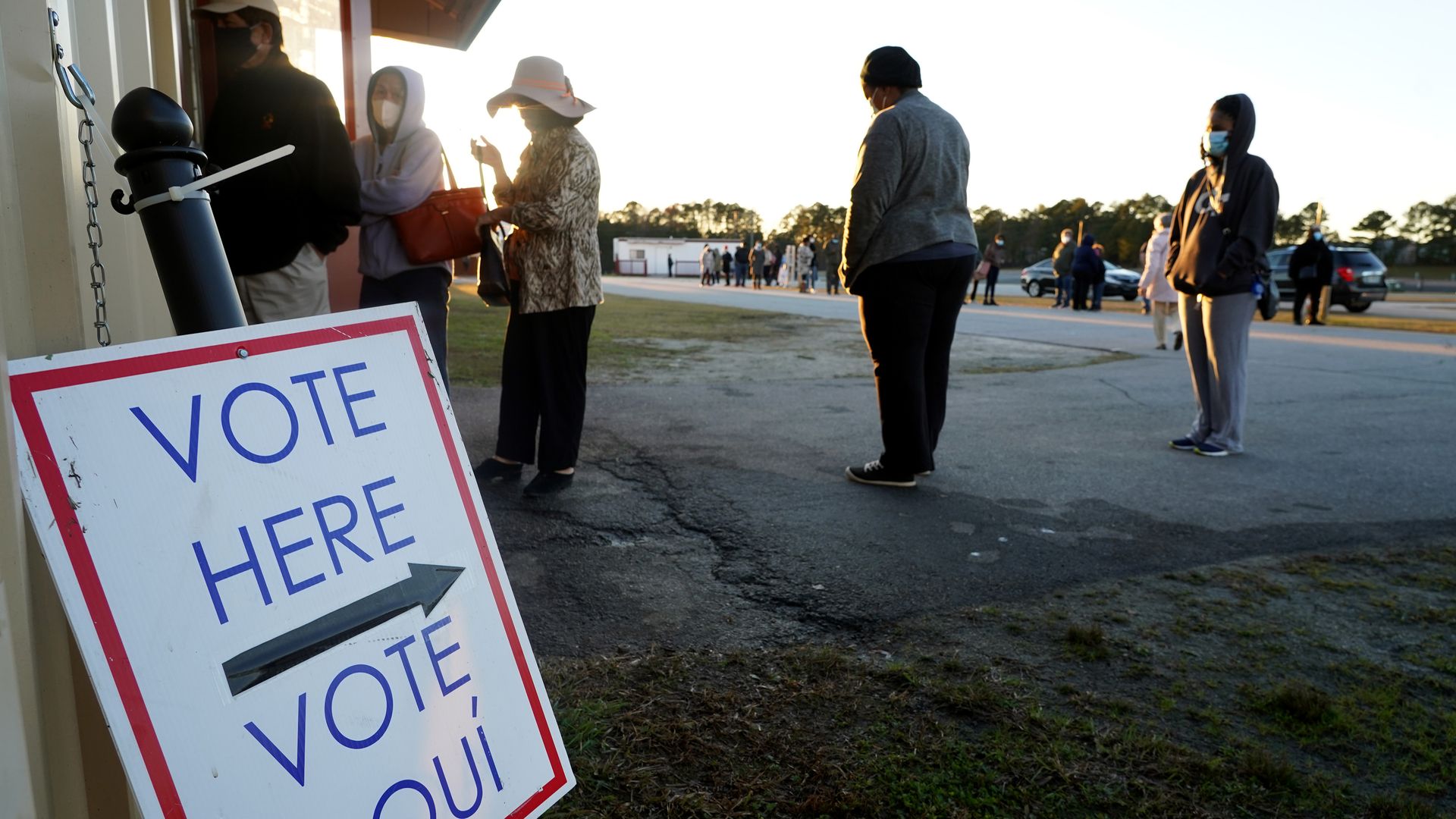Dec 9, 2021 - Politics & Policy
Judge allows lawsuits against Georgia’s voting law to move forward
Add Axios as your preferred source to
see more of our stories on Google.

Voters stand in line to cast their ballots during the first day of early voting in the US Senate runoff at the Gwinnett Fairgrounds, Dec. 14, 2020. Photo: Tami Chappell / AFP via Getty Images
